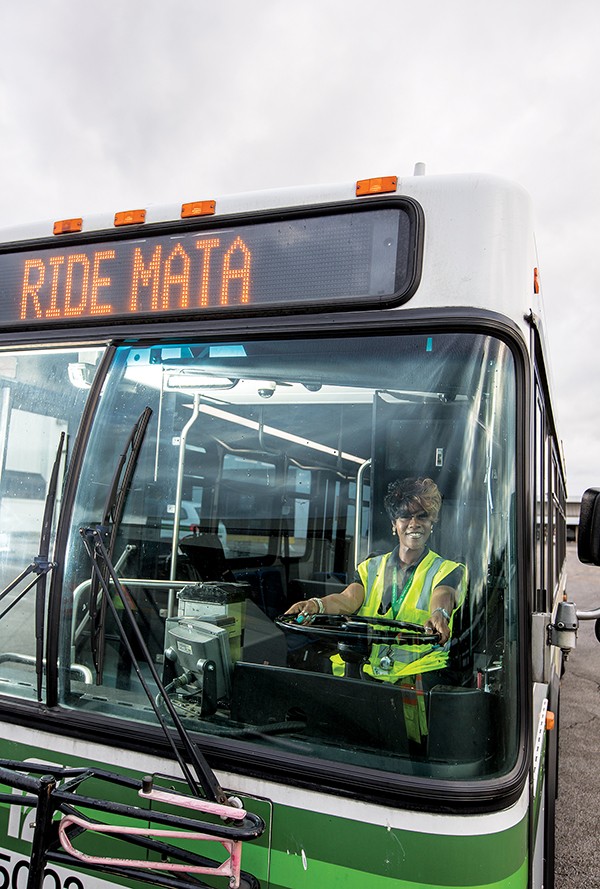Memphis Area Transit Authority (MATA) leaders want to expand its services and will start securing more money next month to do just that.
Various funding options for MATA and Tennessee’s three other major public transit systems were laid out in Gov. Bill Haslam’s IMPROVE Act, which went into effect in July. But the legislation requires MATA to create a transit vision plan before going to the Memphis City Council to request more funding.
MATA officials, along with Innovate Memphis and the city, will begin working on this vision document at a stakeholders conference on Monday, September 25, followed by a planning conference in October.
Gary Rosenfeld, MATA’s interim CEO, told city council members last week that his agency could add about 200,000 hours of bus service by mid-2019 with $30 million added to its annual operating budget. Rosenfeld said MATA is specifically looking to expand its services to job and educational opportunities.
 Justin Fox Burks
Justin Fox Burks
MATA on the move
“Everything that we do primarily at MATA is really geared towards employment and opportunities for our passengers,” he said.
Collaborating with Shelby County School (SCS) officials, MATA has been developing a pilot program that will increase the number of schools MATA services and help integrate high school students into public transportation, Rosenfeld said.
This effort is twofold, he said, as “it will open up opportunities for students and allow MATA to groom bus riders for the future.”
MATA was set to begin a pilot program this fall, but after staff changes at SCS, there were several logistics that hadn’t been worked out, such as how to determine which schools to include in the pilot.
As for access to jobs, Rosenfeld said the current structure and frequency of MATA’s routes make it difficult for people living in certain areas to commute to and from work using public transit and, in extreme cases, may take up to four hours for some to get to and from work.
The way the system is set up now, he said, also limits opportunities to reach different levels of employment, as “there is a lot of service that goes into areas that might pay minimum wage to $10 an hour, but less opportunities to get to those $15- and $20-an-hour jobs.”
For those reasons, he said it is important to improve the level of service in the city and decrease trip times for passengers. Reducing a trip from four hours to 20 minutes “changes the dynamic of using the bus service,” he said.
To do this, Rosenfeld said MATA plans to increase its service in areas near the Airways Transit Center, Frayser, Macon/Waring, and Hollywood/Union. He said more routes will not necessarily be put in place, but more buses will be added to existing routes, in order to increase frequency.
MATA planners anticipate bringing the plan for expanded service and funding before the MATA board, as well as the city council by March 2018. However, council member Edmund Ford Jr. says that the city should not have to handle the entire financial burden of funding MATA.
“If it’s a Memphis issue, it is a Shelby County issue as well,” Ford said. “We should also have our friends on the other side of the street looking at this.”
Correction: The article originally cited an incorrect date for the stakeholder conference; it is Monday, September 25.